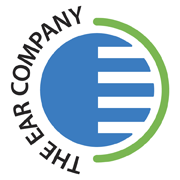As a child, I have vivid memory of Dr. Shepard, my family doctor. The good doctor lived in a large two story white house in a nice area of town and had his office on a portion of the main floor. My parents took me to see the doctor for regular checkups and then awaited his findings and directives.
 If I had abdominal pain and the doctor decided that I needed my appendix removed simply by palpating the area where the appendix would be located, my parents would accepted the diagnosis without question and the surgery was scheduled. If the doctor looked in my throat and decided I needed my tonsills removed a similar process was followed. The point being that medical science was considered knowledge out of reach for the common man. Our physicians held the keys to our health and we as patients accepted diagnosis and the process for remediation without question. Our family doctors, as a result, were held in high regard due to this position of necessary prominence in our lives.
If I had abdominal pain and the doctor decided that I needed my appendix removed simply by palpating the area where the appendix would be located, my parents would accepted the diagnosis without question and the surgery was scheduled. If the doctor looked in my throat and decided I needed my tonsills removed a similar process was followed. The point being that medical science was considered knowledge out of reach for the common man. Our physicians held the keys to our health and we as patients accepted diagnosis and the process for remediation without question. Our family doctors, as a result, were held in high regard due to this position of necessary prominence in our lives.As a young child my family decided that I would be a doctor, actually I was to be a pediatric orthopedist. That, by the way, is entirely another blog. At the age of ten, my parents purchased a whole set Encyclopedia Britannica. In addition to the adult version of the Encyclopedia was a children's version as well as a set of medical Encyclopedias. The expectation was that I was to read them all. This too is probably another entire blog. The Encyclopedias being accessible was for me the unravelling of the mysteries of medical science and was typical of how we learned of the unknown, we read it in a book or Encyclopedia, as it was in this case.
Today we live in a world where knowledge and information flows so much more freely. We do know a lot more than we did when I was a child. So much about medical science has become common knowledge because of the growth in television and other media but specifically the internet. We all have the opportunity to learn about virtually any subject in a very short time. I typically know what ails me and what I want done for me and prescribed for me, before I get to my doctor's office. I know what type of diagnostics I require simply by understanding the disorder or pathology I might have. If the doctor suggests I have something particularly wrong with me that I did not suspect, the first thing I do is a search on that disorder and learn all I can about it. If a family member is diagnosed with something sinister I will educate myself on that disorder and be available to make sure the correct decisions are made by the specialists as well as decisions that I am comfortable with.
The point is that as an Audiologist, I have to be aware of this reality and understand that my job is one that has components that are evaluative and diagnostic however what has become the greatest part of what I do is educate. Most of my patients now know "stuff" about hearing, balance and disorders in both areas. Most of my patients also have some idea of what they do and do not want to do about their hearing or balance issue. What each of us as consumers of health care want more that anything else is knowledge. We want knowledge that allows us to make decisions about ourselves for ourselves. Decisions that WE make are done with a lot more confidence in the outcomes than decisions that others make for us.
So practicing as a Doctor of Audiology has a significant component of being an educator as well as a Clinician. One must consider that people know "Stuff" and that can not be denied. My job is to make sure that people know the right "stuff" when it comes to their well being.




